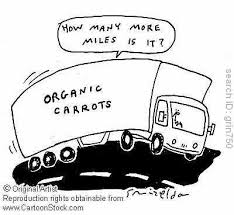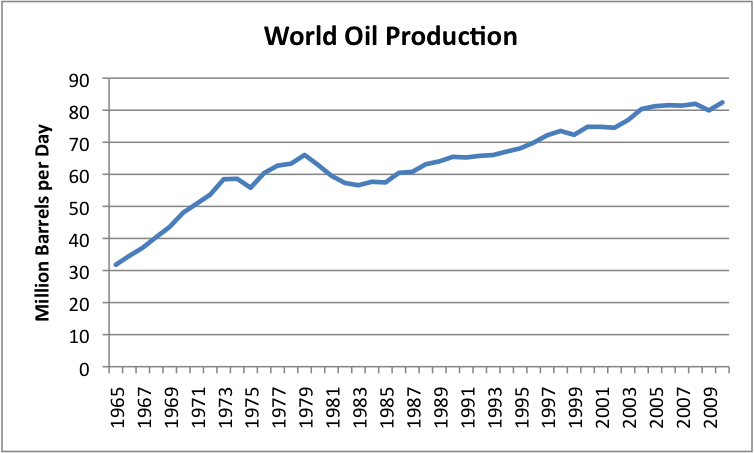Since today is Thanksgiving, and it is a time to be thankful and eat considerable amounts of food, we felt it was appropriate to address food as an issue in today's politics. Food is actually a huge political debate and has significant implications associated with it, most of the time without us realizing it.
The first issue is the way we view and produce food in the first place. For the better part of the last half century, governmental policy has dramatically encouraged the production of a finite breadth of food types, doling out subsidies to corn, meat and dairy farmers, as seen by the graphic below.

.
The subsidies encourage farmers to have limited diversity in the breakdown of the crops they grow and produce. Instead of producing more broccoli, farmers can make a larger profit by producing the meat and corn that is so dominant in our economy.
The imbalance in production mirrors an imbalance in price. A Big Mac is a far more economical option than broccoli in the short term for a family whose income is only minimum wage. You may think that this is not a big concern, but it has huge lasting repercussions in many areas, from health to national security.
First of all, because of the high amounts and low prices of high calorie foods, this contributes to a food environment that favors the consumption of these high calorie options. Consequently, over one third of adults are currently classified as obese and kids are quickly catching up.
This epidemic of obesity has serious problems for our health system. With an increased number of people being obese, this also means an increased number of people with weight related health problems, such as heart disease. This means higher health care costs for everyone, as health care providers scramble to balance the books with such a large segment of the population representing such a high risk. Now, with the Obama health care plan representing a large role for government in the management of health care, this means government may have a new role in managing the food supply to promote health.

But health problems are only one part of the food picture. One is food's relationship to energy. The production and transportation of food takes over 19% of the fossil fuels used in American industries. In addition, more carbon is introduced into the atmosphere due to all sorts of farm factors: through chemical fertilizers, machinery, processing, etc. This guzzling of a scarce resource, oil, only adds to the dependence on foreign oil, another politicized issue that politicians love to have their talking points about. Regardless, the energy politics are a lot more complicated than just a question of energy for cities and cars, it also includes how we gain the calories we need.
The final point we must consider is food security. Michael Pollen addresses the importance of the issue in his article
An Open Letter to the President by saying that "when a nation loses the ability to substantially feed itself, it is not only at the mercy of global commodity markets but of other governments as well." Now, what is the US's position in terms of food security?
First of all, relating back to energy, much of our food has been re-purposed for fuel. Up to 37% of our total corn crop has been directed away from the food market and into ethanol production. This decreases the food supply, but as of yet it has yet to impact us in a significantly negative way. We discuss the negative consequences of using food for fuel
here.
But that may change in the coming decades, as a combination of factors could pose serious threats to our food supply. For one, the energy that the food supply so dearly depends on could become much less dependable and much more expensive, especially as the politics of the Middle East become more and more unpredictable. Moreover, the US just this last summer was hit with a historic drought, and Russia has had severe decreases in wheat production as they deal with similar environmental factors. If these severe weather instances develop into recurring trends, then it will be even more difficult to maintain a steady food supply. Finally, as examples such as the 2008 Chinese milk scandal helped reinforce, the US cannot rely on international sources of food without serious misgivings about the detriments to health.
All isn't lost though. There are actions we can take to ensure our own health, energy efficiency, and national security with how we decide to manage the politics of food in the coming years. So given that, after you eat and give thanks today, write to your representative to send the message that food is a very important political issue right now and needs to be addressed in a pragmatic manner.
Happy Thanksgiving!



 .
. 